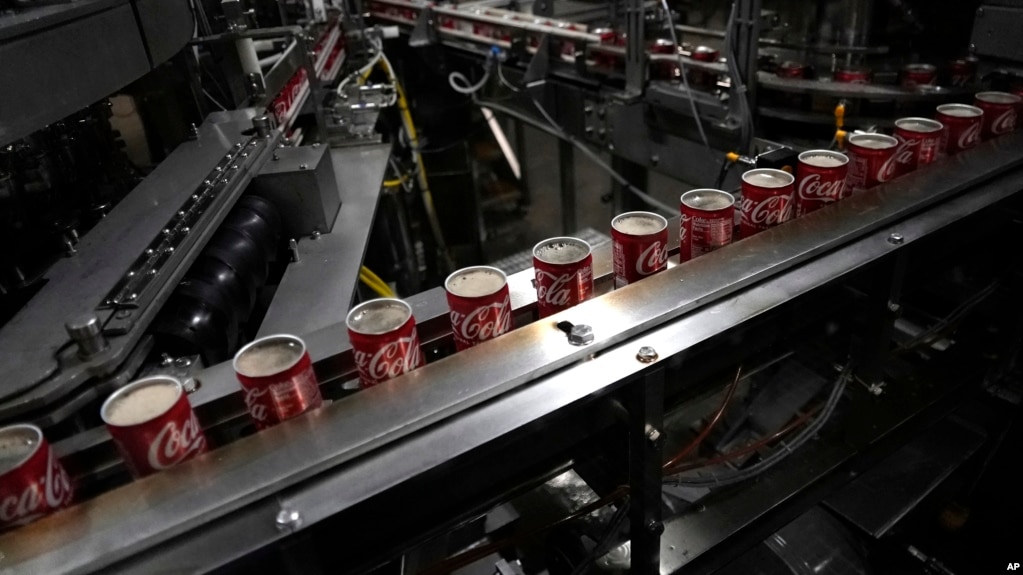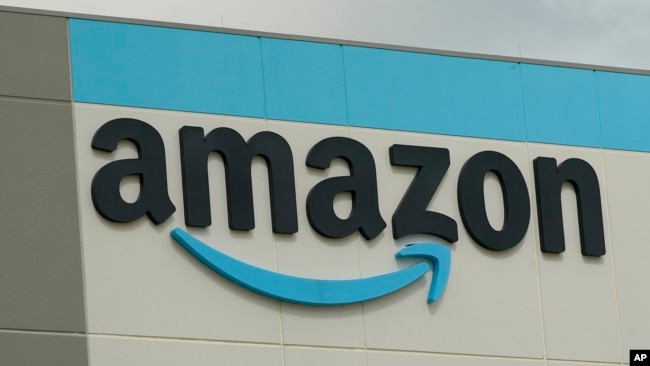AUDIO
Environmental Group Says Few Companies Meet Water Use Targets

Major corporations in industries that produce clothing, food, drinks and technology services use a lot of water.
However, many companies say they want to be more responsible about the freshwater they use. Drought, floods and extreme weather also threaten their supply chains.
The nonprofit environmental group Ceres ranked 72 companies for their sustainability efforts. Ceres said few of the businesses are close to reaching the 2030 goals set by the group, which is based in Boston, Massachusetts.
Last year, Ceres launched an effort to push companies with large water usage to protect water resources. Recently, the group released a study that included the corporations Coca-Cola, General Mills and Amazon.
“There’s no doubt that companies need to do better,” said Kirsten James. She is a program director for water at Ceres.
Ceres said the companies were chosen from four industries based on their size and use of water. They were ranked based on several factors, including promises to protect the amount and quality of the water they use, as well as the environments that supply it. They were also tested on whether they helped improve access to water and sanitation in communities where they do business. Ceres used publicly available information, including information the companies provided to the government through March.
None of the companies scored above 70 percent of the points available. Some were considered to be on track to meet the goals set by the nonprofit group, with scores of at least 50 percent.
Coca-Cola said its water use in 2022 was 10 percent more efficient compared to 2015. The company said it hopes to have 100 percent circular water use. That is where all water is used and returned to the watersheds it has been drawn from.
But the company did not say how likely it was to reach that target, nor how much progress it has made. Coca-Cola also said producing its products does not use as much water as growing what goes into the products it sells.
“The agricultural ingredients that we use use vastly more water to produce than the actual manufacturing process,” said Michael Goltzman. He is vice president of Coca Cola and a sustainability head.
Reports say technology companies, like Amazon and Apple, use a lot of water to cool the computers in their large data centers. The Ceres study rated both companies below 20 percent progress toward the nonprofit's targets.

FILE - The familiar sign at the Amazon Robotic Sorting Fulfillment Center in Madison County, Miss., Thursday, Aug. 11, 2022. AP Photo/Rogelio V. Solis)
Food company General Mills was among the companies closest to meeting the 2030 targets, at 65 percent.
Mary Jane Melendez is the company's chief sustainability officer. She said 85 percent of the company's water use is in agriculture. Extreme weather in the U.S. has reportedly affected the company in recent years.
Melendez gave examples of weather-related problems. She said freezing and thawing hurt the company’s supply of sugar beets. She also said drought affected its oats supply.
Michael Kiparsky is director of the Wheeler Water Institute at the University of California, Berkeley. He said that corporations have an interest in protecting their operations from water shortages. That could push them to make bigger steps to protect freshwater resources.
Kiparsky pointed out there is no way to enforce Ceres’ targets. But he asked, “Does money talk? When it talks, it talks pretty loud," he said.
_______________________________________________
Words in This Story
drought — n. a period of much less rain than normal
sustainability — n. the ability to continue to use a resource without using it up
factor –n. Something that produces a result
access — n. the ability to get or use something
sanitation — n. the equipment and structures needed to process waste and wastewater in a place
efficient — adj. using the right amount of a resource without using too much
watershed — n. the land area drained by a large river system
vast — adj. very large or wide
thaw — v. when ice or something that is frozen returns to a higher temperature and melts
https://learningenglish.voanews.com/a/environmental-group-says-few-companies-meet-water-use-targets/7337607.html